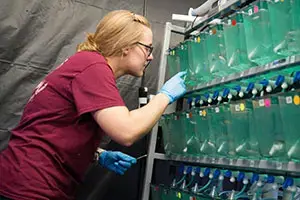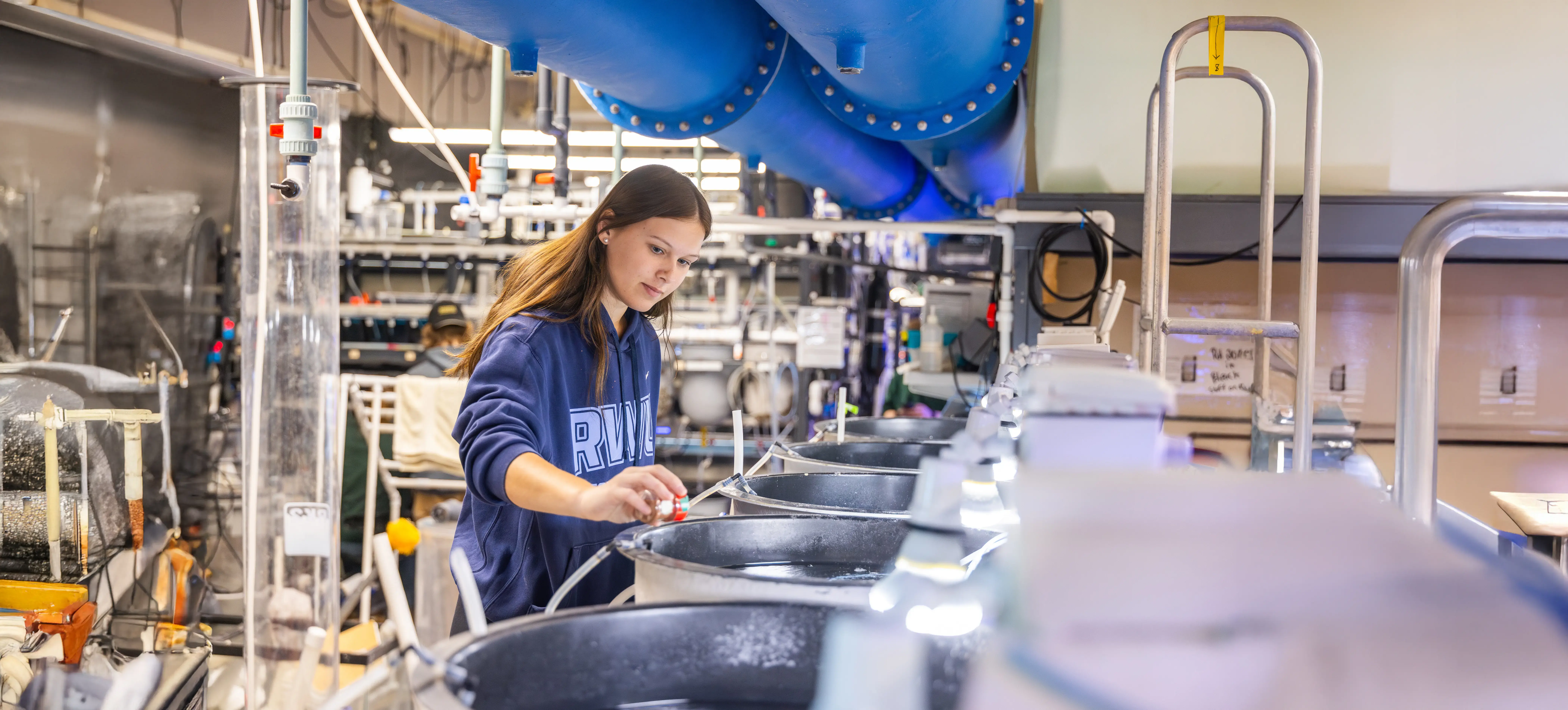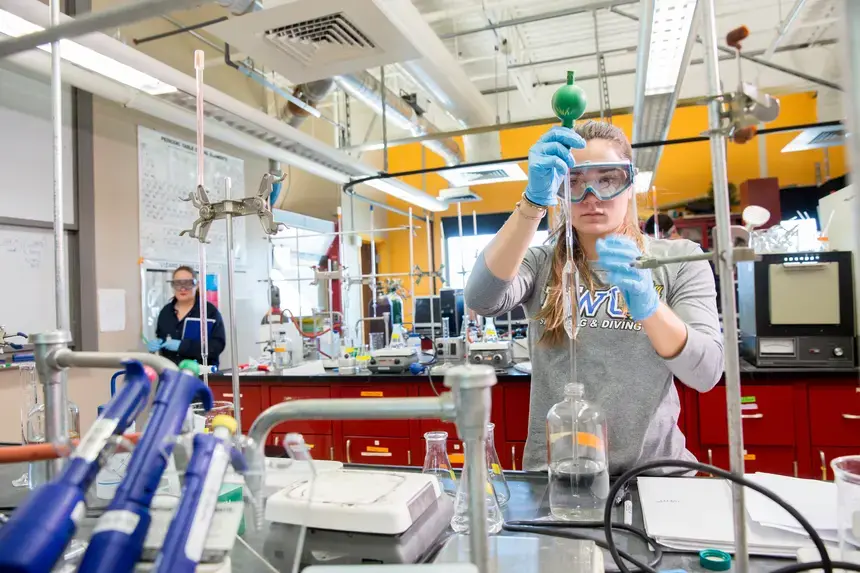About the Aquaculture and Aquarium Science Major
QUICK LINKS
Aquarium Science and Aquaculture Overview and Opportunities
Aquaculture of marine and fresh water fish and invertebrates, already important as a food supply, is projected to increase in the future becoming one of the main sources of food for the world. Aquarium science is a multi-billion dollar, world-wide business that encompasses trade and display of ornamental animals. Diseases of aquatic animals is a limitation in maintaining animals in both aquariums and aquaculture. The AQS minor offers both didactic and experiential, hands-on learning and will prepare the student for entry into this diverse and growing field.
Aquaculture and Aquarium Science Degree Requirements
New Program for 2025: Aquaculture and Aquarium Science Undergraduate Certificate
The RWU Aquarium Science faculty and staff partnered with The Aquarium Vet to launch the Undergraduate Certificate in Aquaculture and Aquarium Science for the 2025 academic year. Please visit the undergraduate certificate program page for more information.

Aquarium and Aquaculture Sciences Research Opportunities
Undergraduate research is integrated into the Aquarium and Aquaculture Sciences curriculum, with opportunities for students to earn academic credit for doing research, to develop proposals and compete for small grants to fund their projects, and to present their findings at regional, national and international conferences. These studies often involve contact and interaction with industry members, and are conducted using the state-of-the-art laboratories at RWU that include a production-scale shellfish hatchery, an extensive marine ornamental research facility and an aquatic animal veterinary laboratory.



